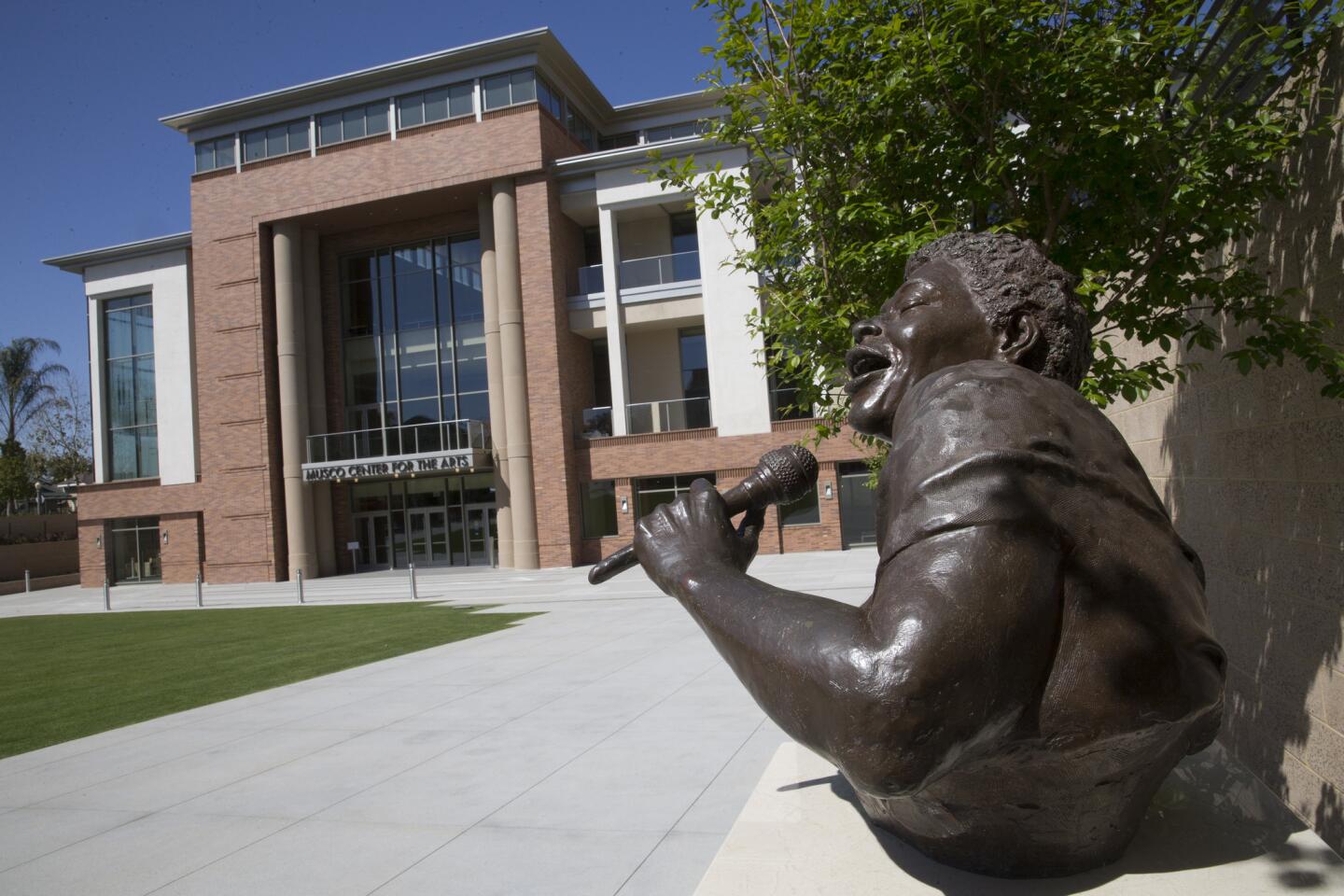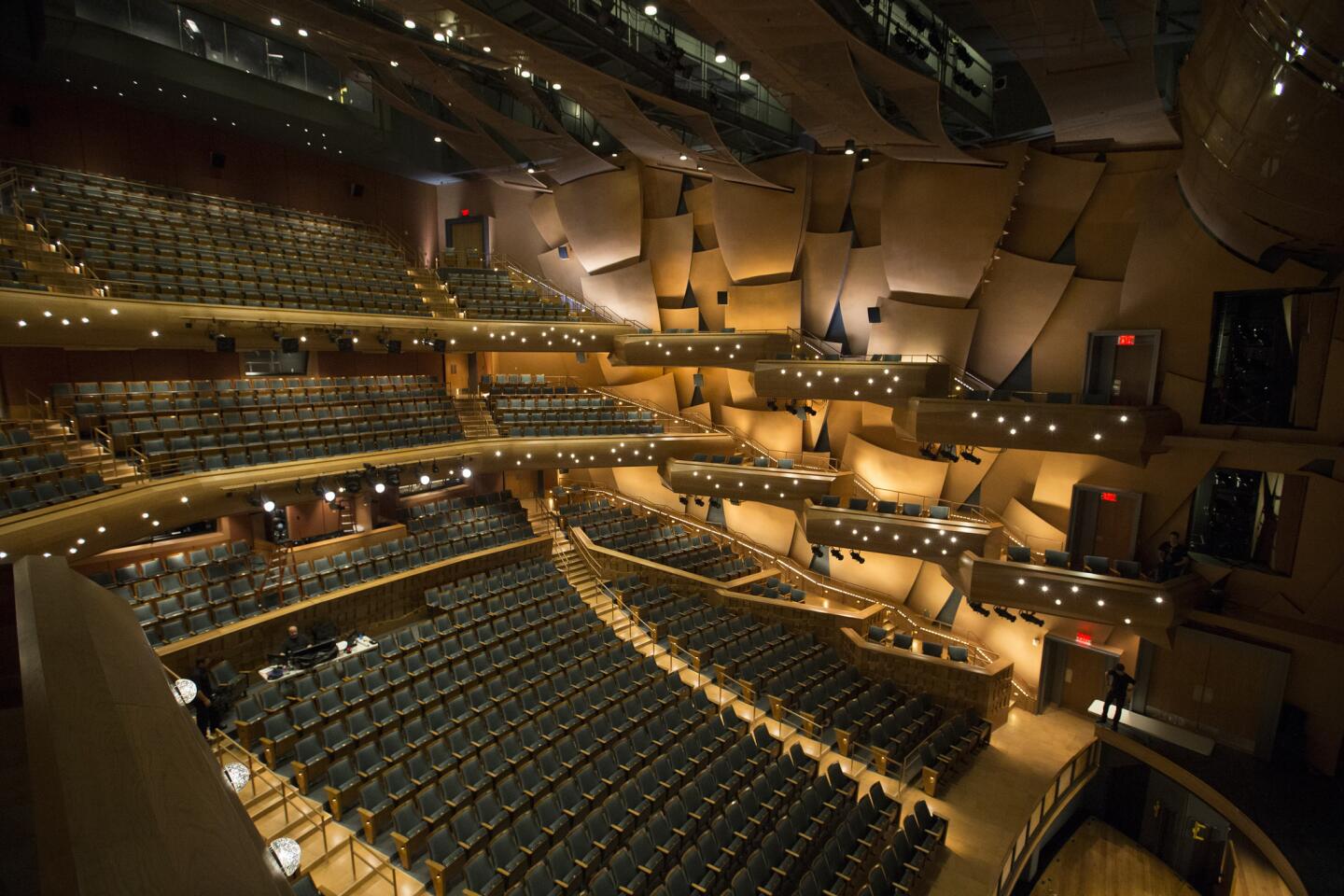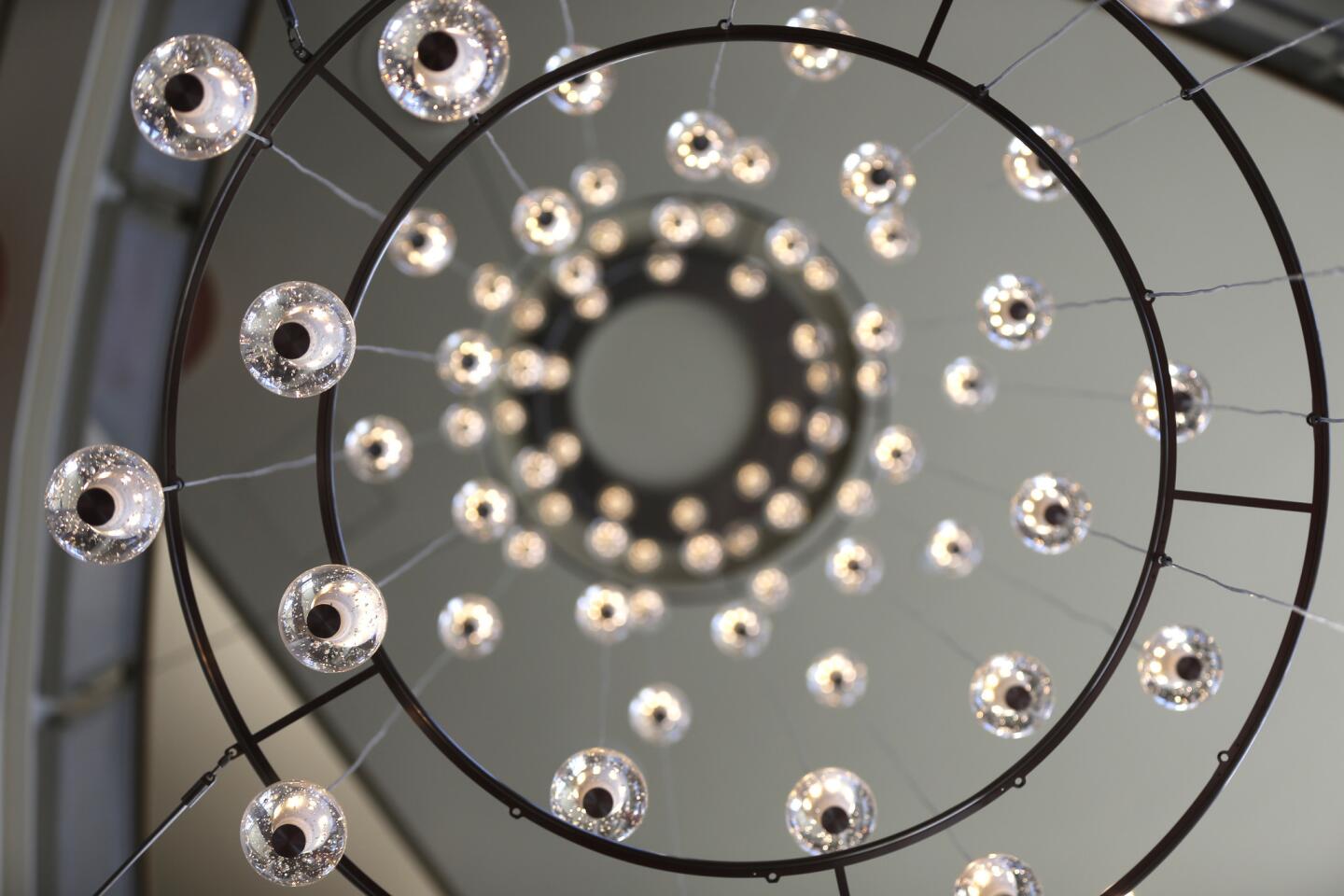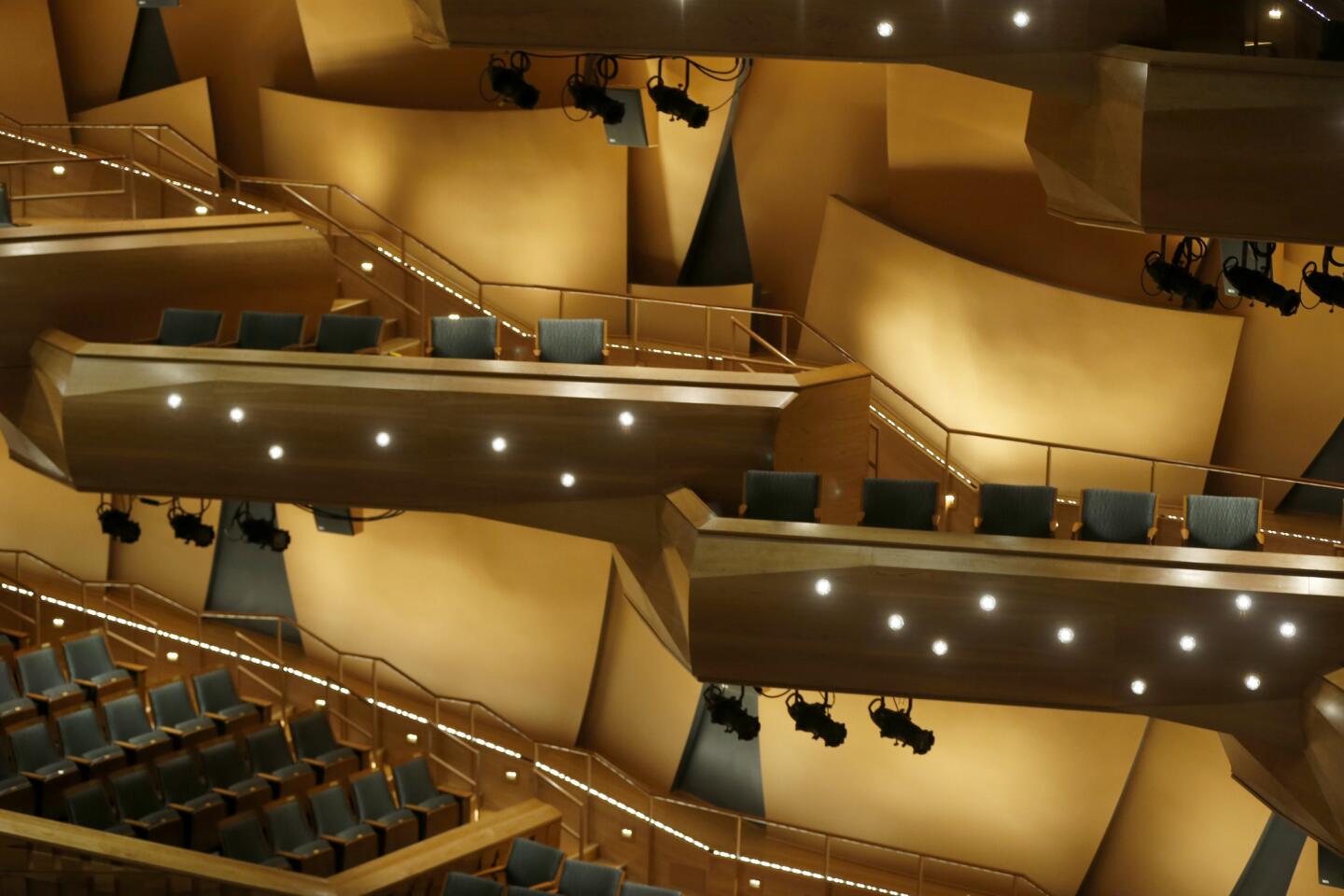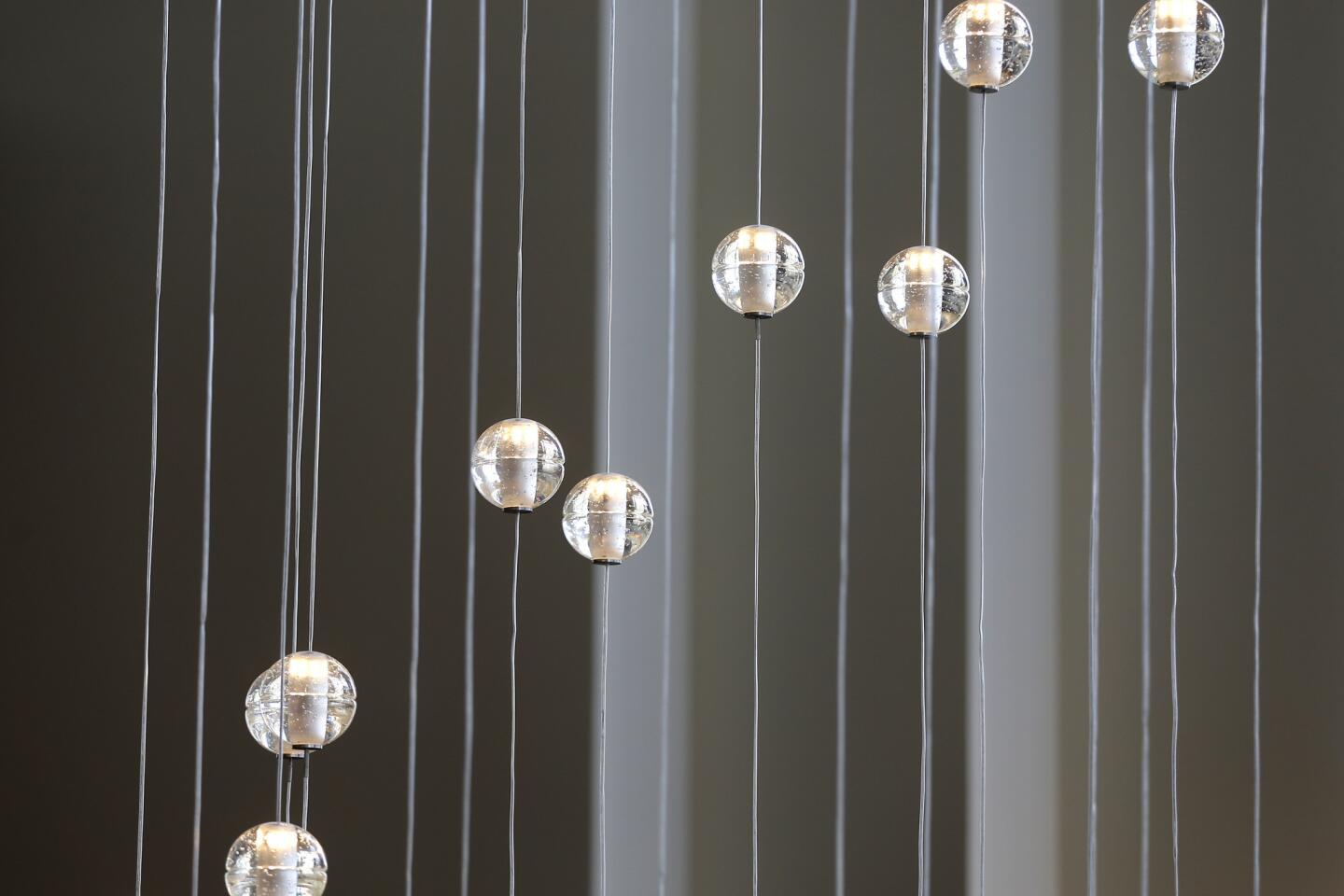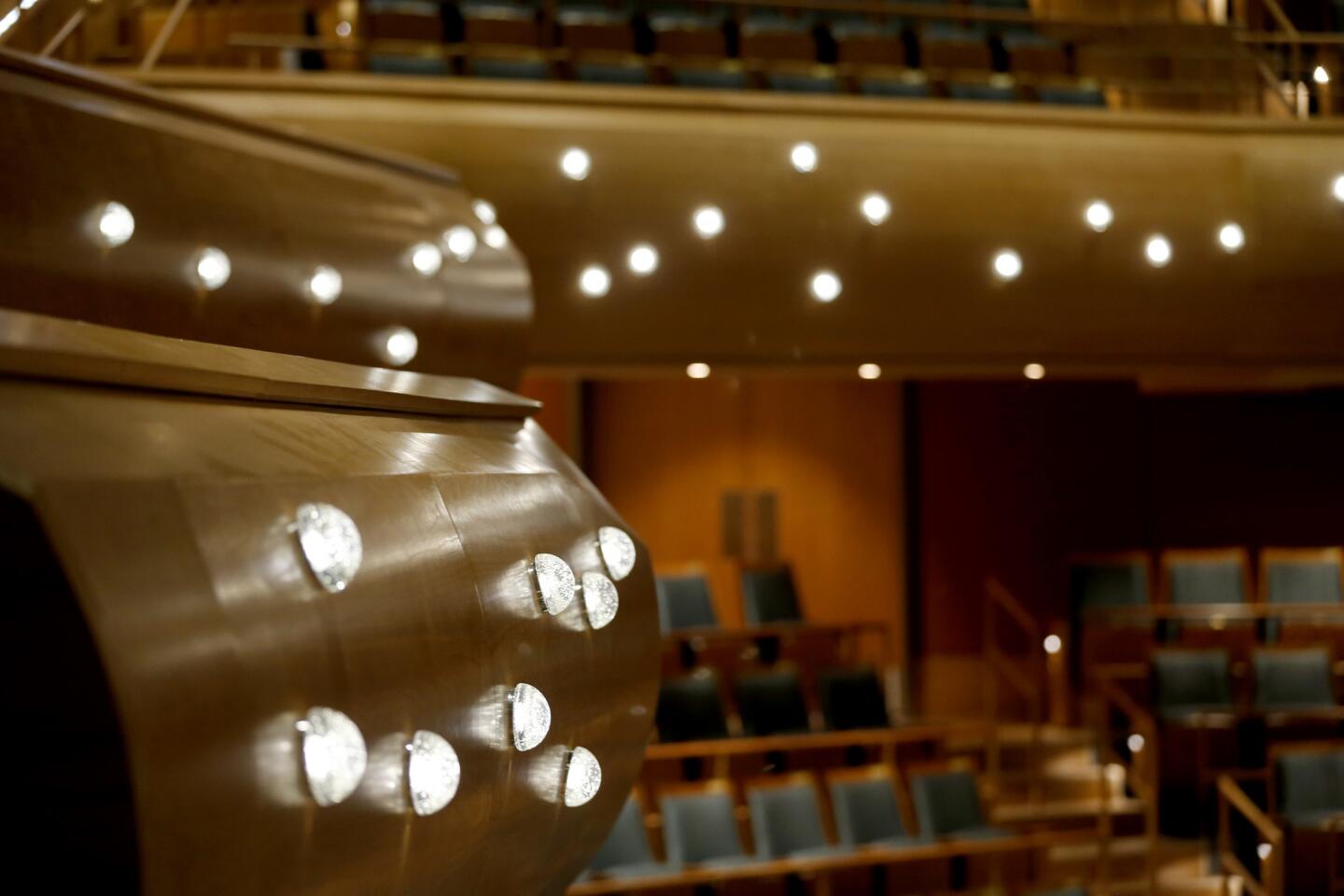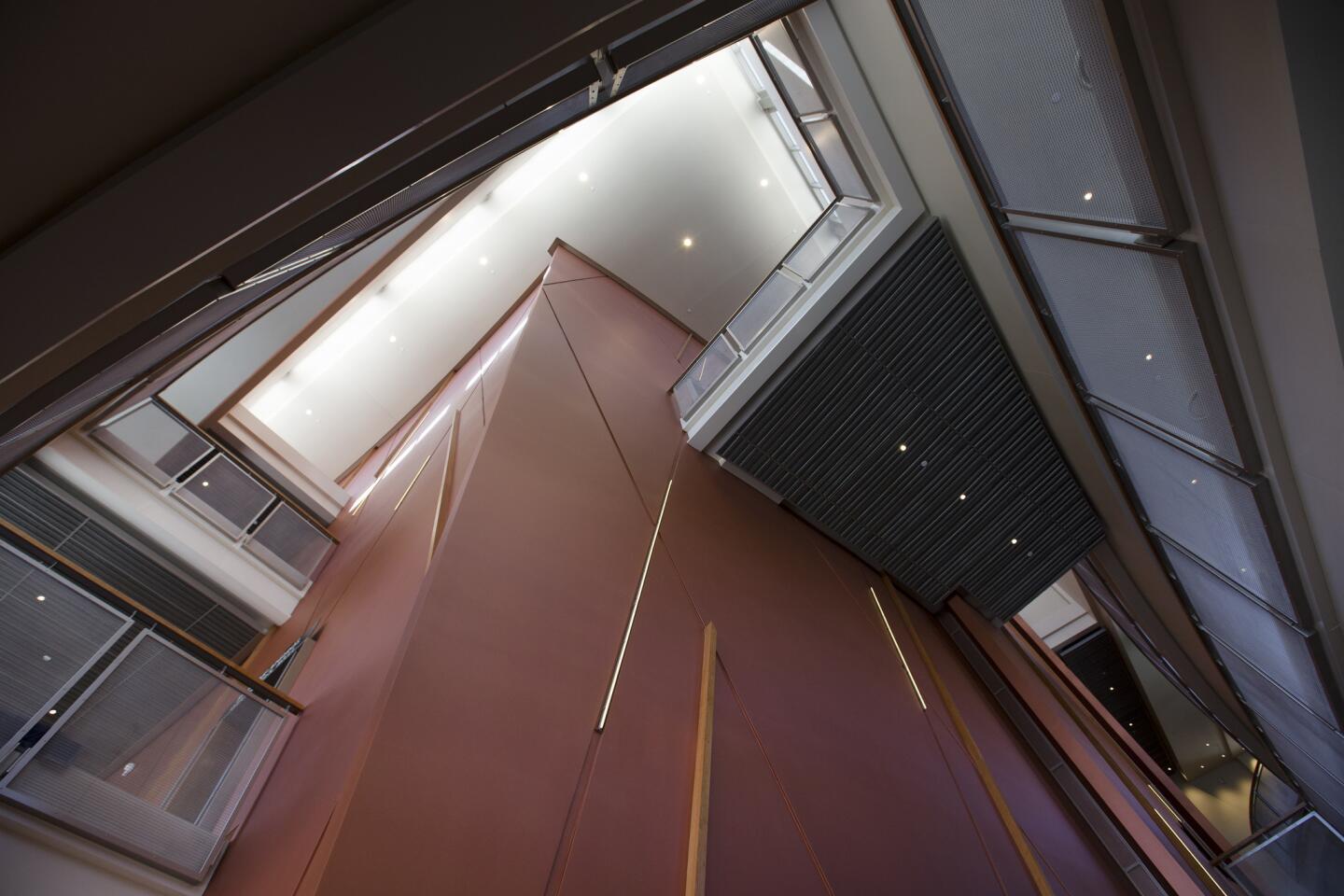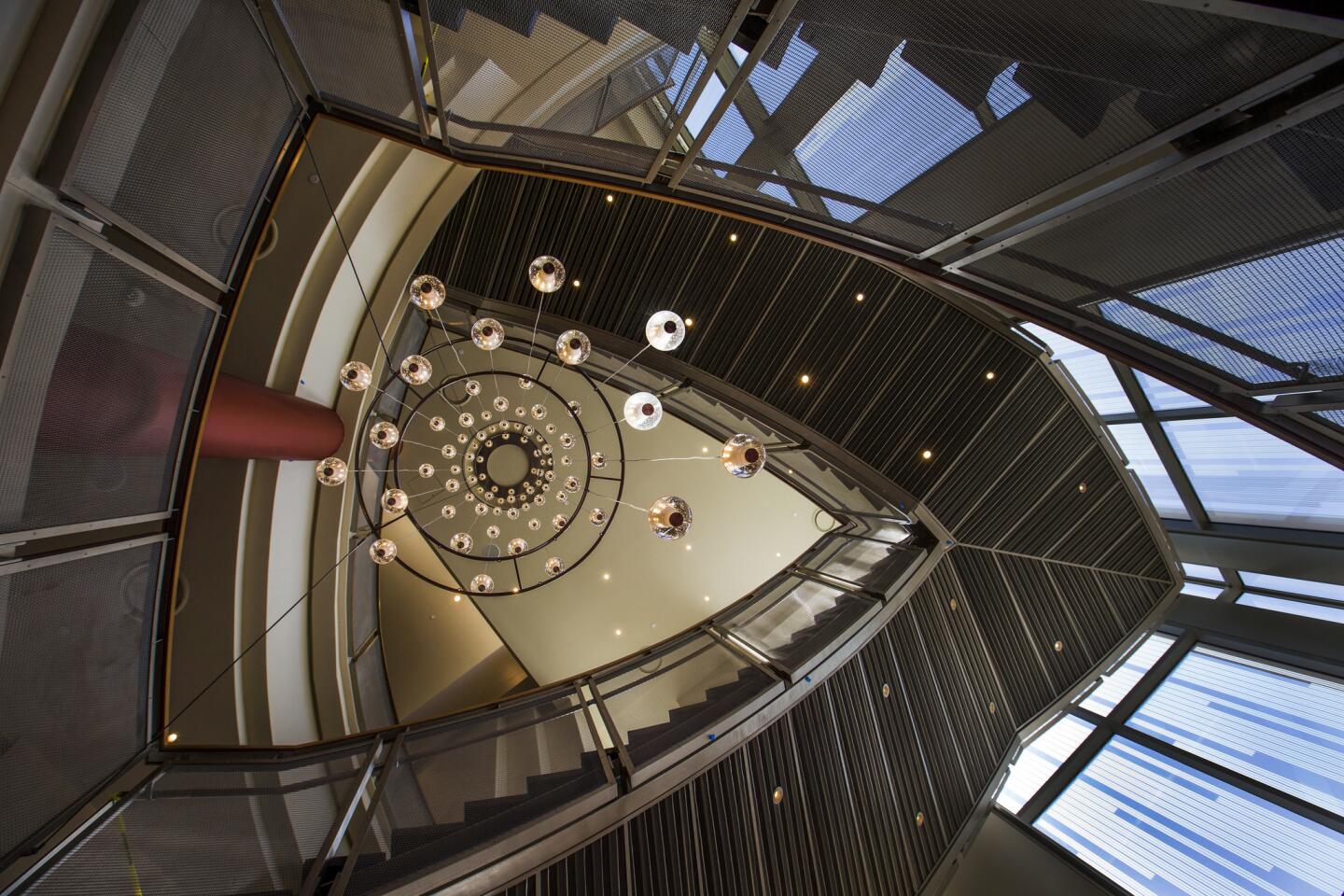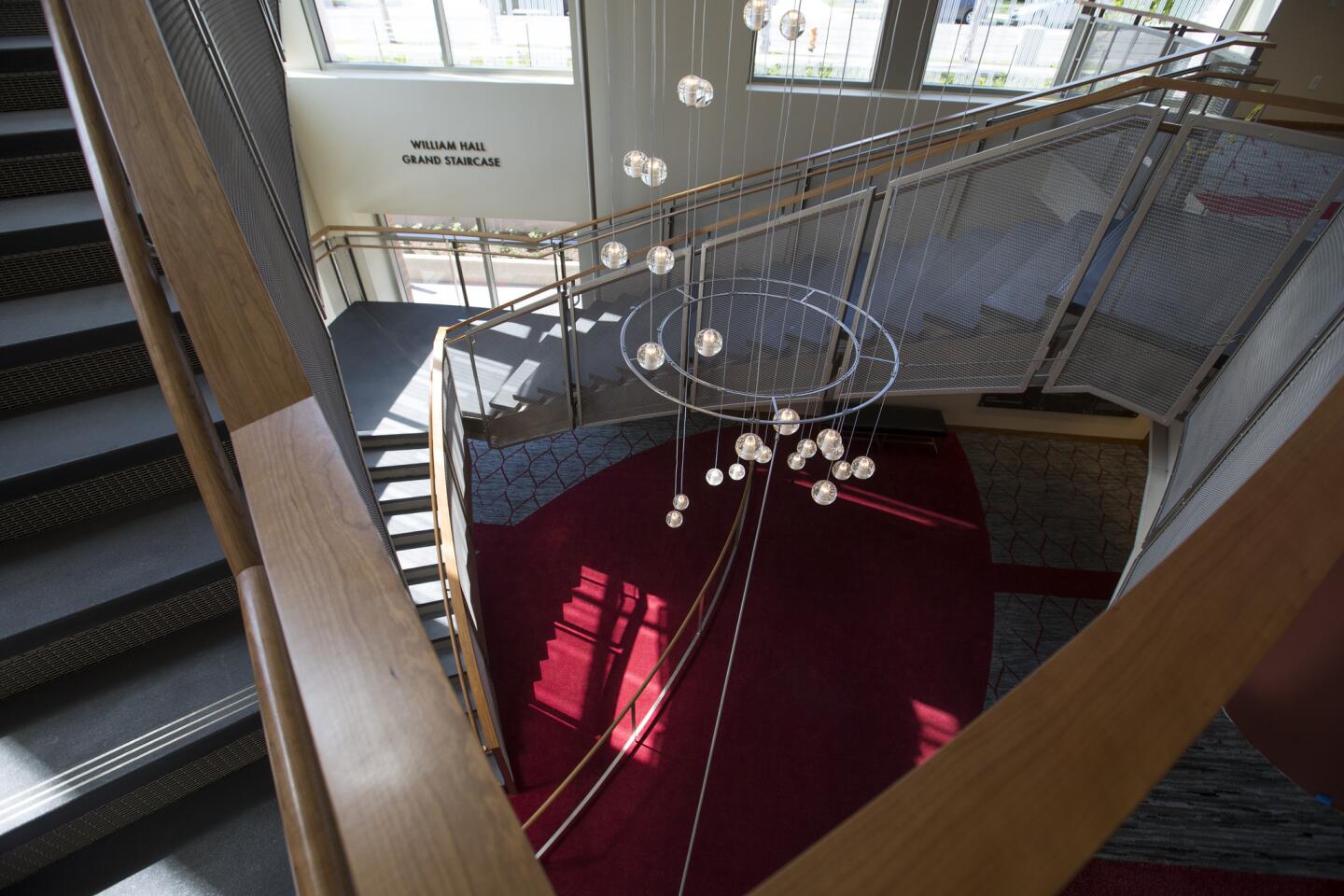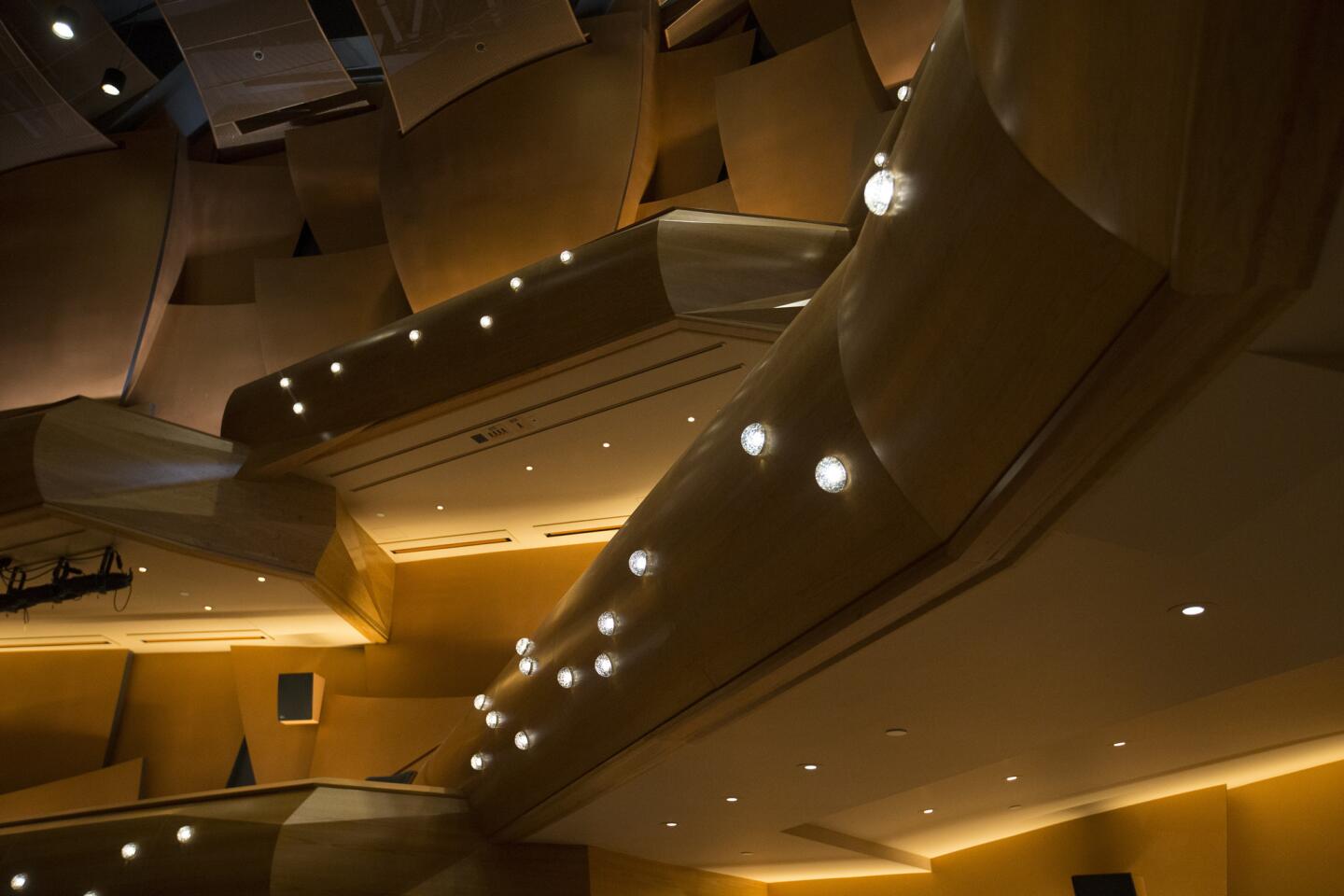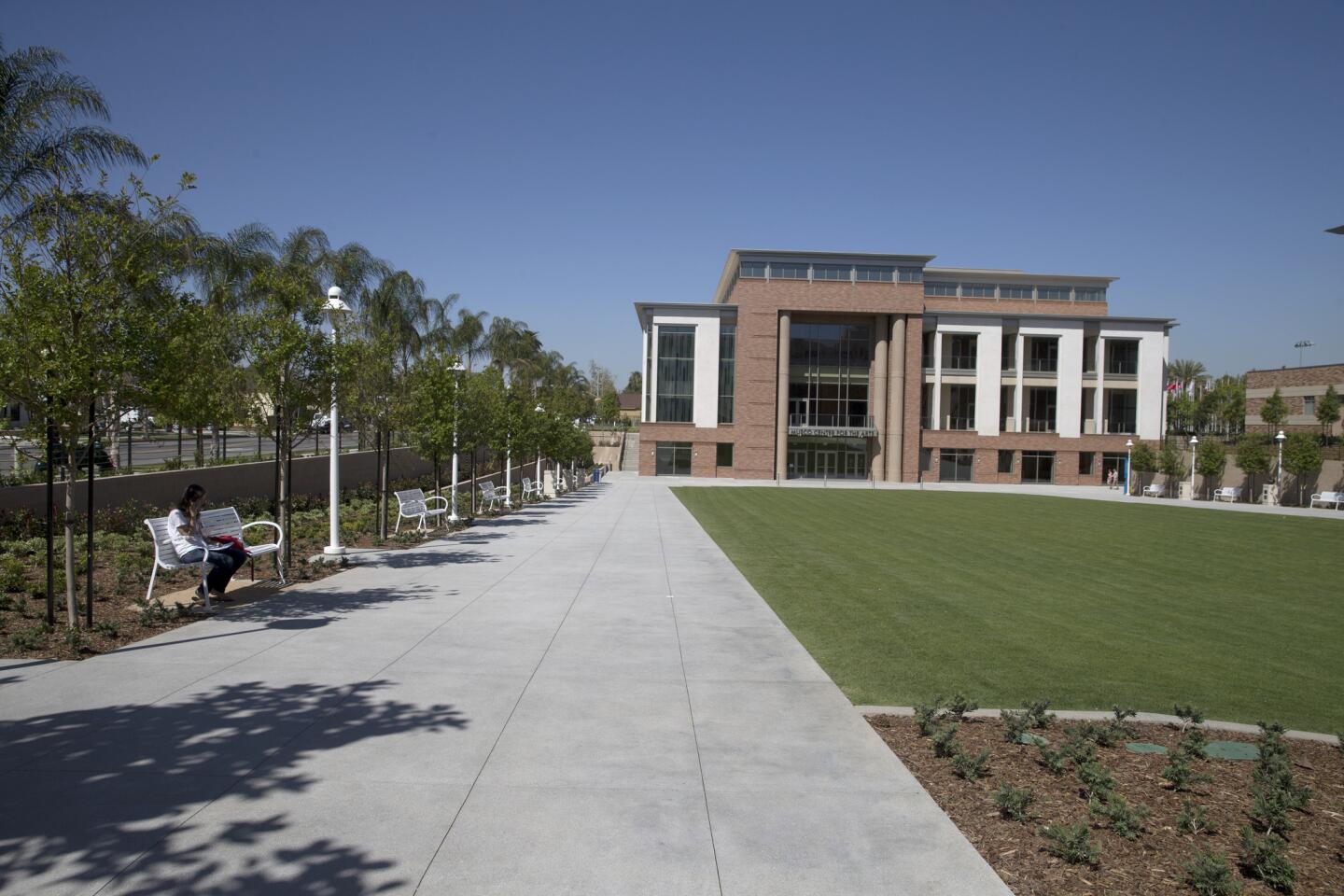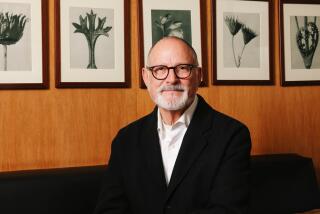Meet the philanthropic couple behind the Musco Center for the Arts
- Share via
A millionaire many times over who pulled himself up from modest means, Sebastian Paul Musco has simple advice for those want to get ahead in life: Work hard.
As recounted during a recent interview at their two-story penthouse in Irvine, Musco and his wife, Marybelle, have done that all their lives. They toiled for years to build Gemini Industries, a precious metals company founded in the early ‘70s in Orange County.
See more of Entertainment’s top stories on Facebook >>
In the firm’s early days, resources were so thin that Marybelle Musco would answer phone calls for multiple departments. “I would change voices,” she recalled. “We had fun.”
In recent years, their hard work has yielded a new project that the philanthropic couple considers one of their most important achievements: a new, 1,044-seat performing arts hall bearing their names, the Marybelle and Sebastian P. Musco Center for the Arts at Chapman University.
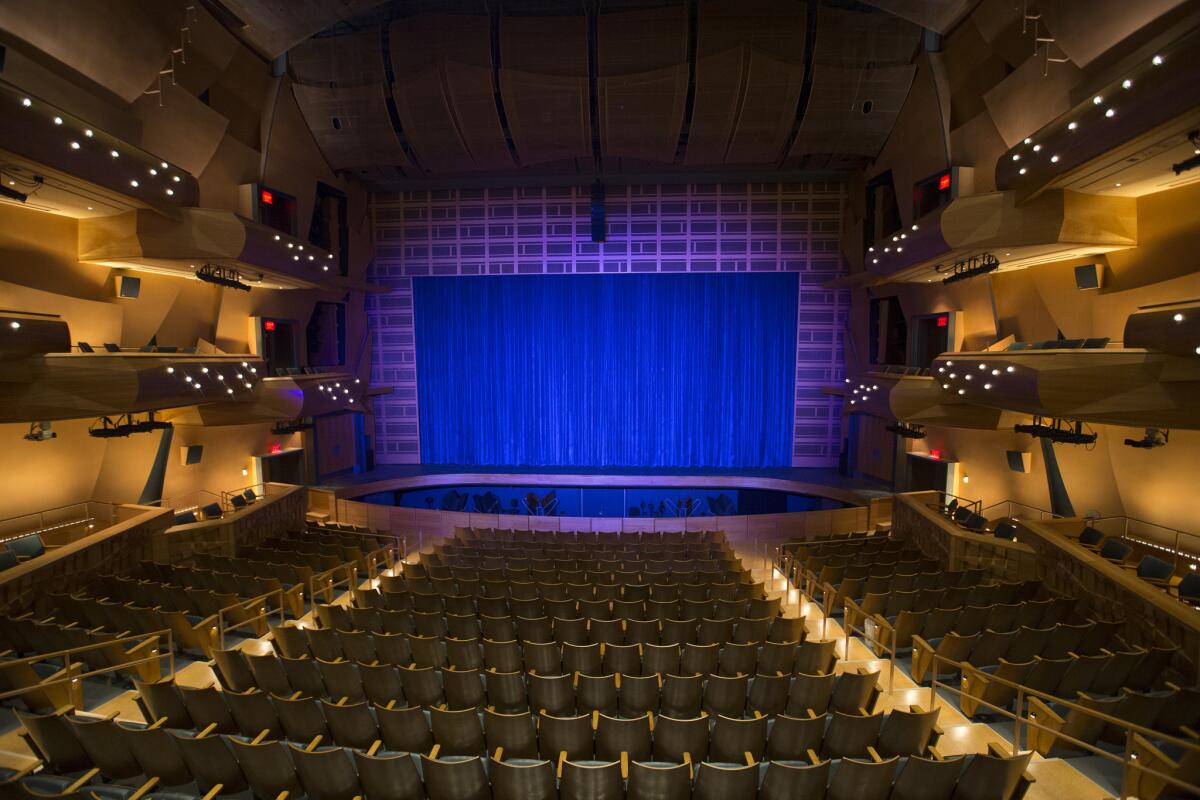
The mid-size hall, which will officially open Saturday with a gala celebration starring Plácido Domingo, cost $82 million to construct and will serve primarily as a venue for performing arts students at the private university.
Leaders estimate that 70% of the hall’s availability will be given to educational purposes, while the remaining time will feature visiting performers and ensembles.
Paul Musco — who recently turned 90 and prefers to go by his middle name — said that he initially wanted the amount of the couple’s financial contribution to the center to remain undisclosed, but news broke late last year.
“It upset me very much,” he said. One newspaper reported their donation as $38 million. The couple said it is actually $39 million.
A Chapman spokeswoman said the school didn’t contribute any money toward construction of the building and that funds were raised through private donations. She said no more money remains to be raised to pay for the construction.
The Muscos have remained highly involved in the building’s creation, participating in such details as the color scheme in the main performance space, the derriere-friendly thickness of fabric for auditorium seats and the number of stalls in the ladies’ room.
“We are not the kind of people to give money and walk away,” said Marybelle Musco, who described herself as a perfectionist. But neither are they helicopter philanthropists: the programming will be overseen by Artistic Director William Hall. “We leave it to the experts” she said.
The center features a rather large stage for its size, with a proscenium width of 62 feet and a spacious pit that can fit an operatic orchestra. The hall’s interior features an abundance of wood paneling, with large, overlapping acoustical plates lining the side walls.
The hall’s acoustics were overseen by Yasuhisa Toyota, who also worked on Walt Disney Concert Hall and the Soka Performing Arts Center in Aliso Viejo.
Approaching the center from the grand entrance, the floor of the complex angles downward, with parts of the building residing physically underground. The front of the center is three stories tall while the back is five stories. Officials said the design was deliberate to conform with height restrictions in the historic section of the city of Orange.
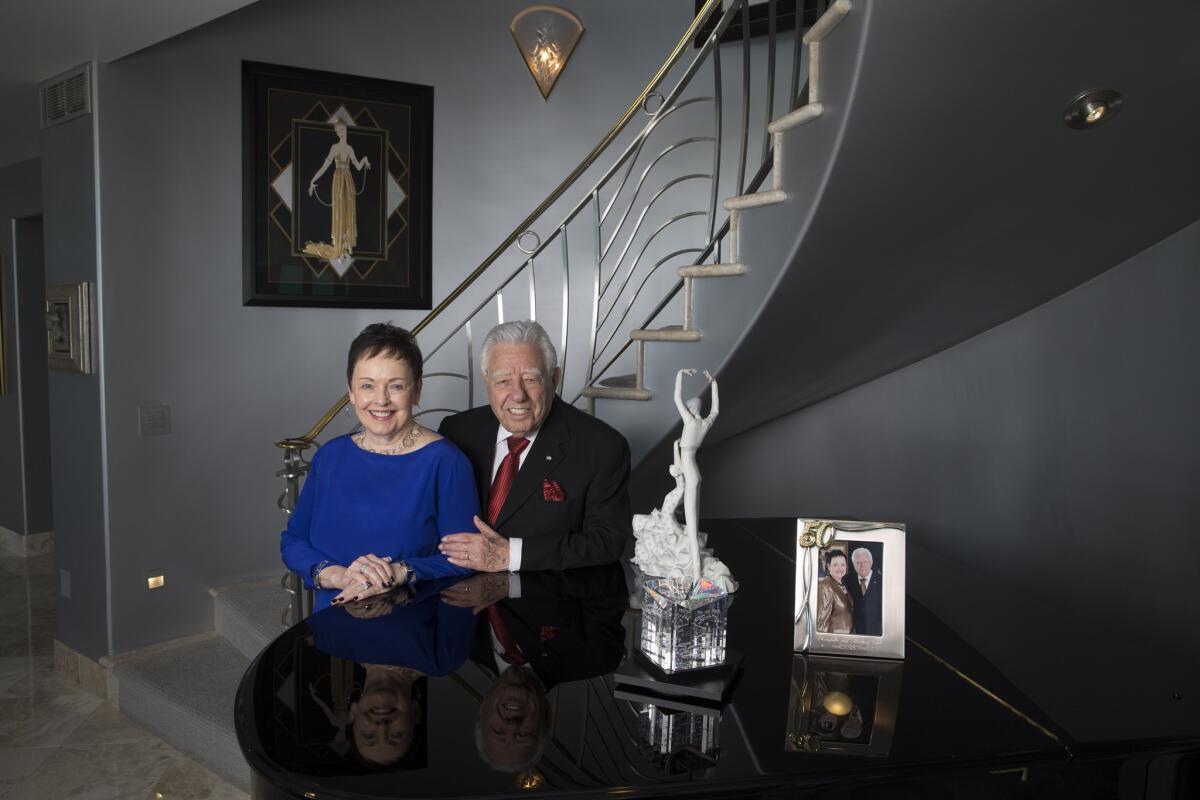
Sebastian Paul Musco and his wife, Marybelle, provided nearly half of the performing arts center’s $82-million construction cost. They pose here in their Irvine penthouse.
For its first full season starting in September, the Musco Center projects artistic spending of a little more than $2 million, according to the center’s interim Executive Director Richard Bryant. The center is a non-union house, with a full-time staff consisting of university personnel.
Paul Musco is a Chapman trustee but didn’t graduate from the university. Growing up in a large Sicilian family in Rhode Island, he was a lackluster student who frequently played truant and sometimes enlisted his twin brother to take exams for him.
“We were poor moneywise but rich in other avenues,” he said of his family. As a teenager, he lied about his age and joined the Navy, serving during World War II.
Later, he made his way to Chicago and found work in the precious metals industry. He married his wife in 1970 — they met while working at the same company — and they moved to Orange County two years later.
At the time, the cultural scene in the O.C. “didn’t exist, which was really difficult,” recalled Marybelle Musco. She has long been a fan of the arts, especially dance, thanks to her father, who “loved the arts and instilled that passion in me from an early age.”
The couple described their philanthropy as selective, preferring to make a limited number of large donations rather than numerous small ones. Paul Musco has served for years on the executive committee of Los Angeles Opera, and the couple has long supported what is now PBS SoCAL.
Paul Musco said he doesn’t believe in withholding charity until after he dies, which is common among wealthy philanthropists. “Give it now. What’s the difference?” he said. “That way people who are recipients of generosity have someone to say thank you to.”
During the interview, Musco frequently directed his blunt style at himself, cracking jokes about his age. “I tell people I look like Bob Hope from behind and no hope from the front,” he said.
Marybelle Musco said she’s accepted her husband’s desire to continue going to work every day. Over the years, their business interests have expanded to multiple states and different industries.
“I realized he wouldn’t be as healthy if he just stayed home,” she said.
Still, being 90 isn’t easy. Paul Musco said he relies on an elevator in their Irvine penthouse — their primary residence for two years after spending decades in Newport Beach — due to problems with his heart. The couple gets around primarily in a chauffeur-driven Rolls-Royce.
Their wealth is something the couple keeps in firm perspective. At one point, they reminisced about a one-bedroom apartment in Chicago they called home in their early years together.
“We were very happy,” said Paul Musco. “We weren’t happy because we had a lot of money. We were happy because we had ourselves. That’s all I care about. We can always go back to that one-bedroom apartment and be happy.”
More to Read
The biggest entertainment stories
Get our big stories about Hollywood, film, television, music, arts, culture and more right in your inbox as soon as they publish.
You may occasionally receive promotional content from the Los Angeles Times.
